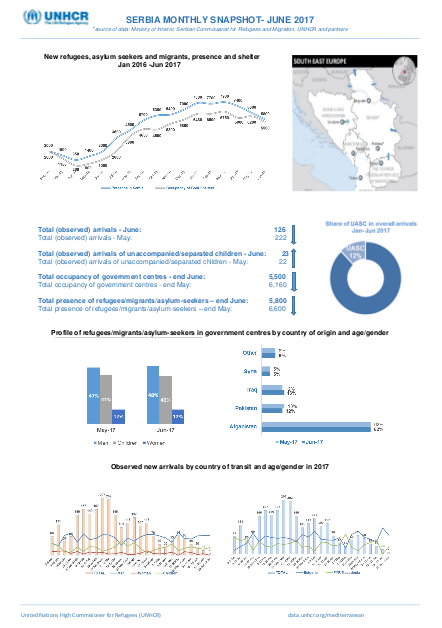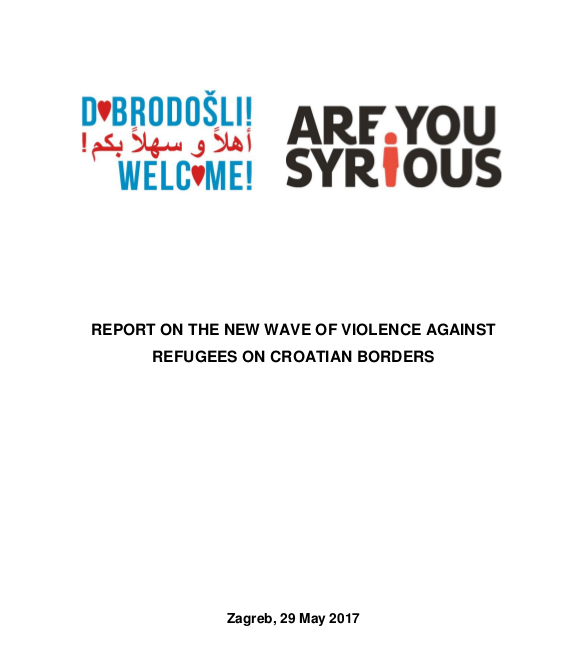Tausende Flüchtlinge wurden 2016 auf der Balkanroute durch Zäune gestoppt. Eine Familie aus Syrien klagt jetzt in Straßburg dagegen. Sie tragen Waffen. Sie haben den Zaun hochgezogen, mit Stacheldraht gesichert. Sie haben das Tor verschlossen und lassen kaum noch jemanden durch. Sie zerstören letzte Hoffnungen, hier im Schlamm von Idomeni, wo viele von ihnen seit Wochen ausharren. So sehen die mehr als 1000 Syrer, Iraker, Iraner, Afghanen und anderen Flüchtlinge die mazedonischen Soldaten und Polizisten, als sie am Vormittag des 14. März 2016 losziehen, ein Montag. Unter ihnen ist auch die Familie Asaf, Vater Bilal und Mutter Nara, Sohn Ahmed und Tochter Rama. Sie brechen auf von ihren Zelten auf Wiesen und zwischen Bahngleisen, laufen sechs Kilometer über Asphalt, Sand und Schlamm bis zum Ende des Grenzzauns, wo sie auf den reißenden Fluss treffen. Die ersten waten durchs kalte Wasser, um endlich in Mazedonien anzukommen. Niemand will nach Mazedonien. Alle wollen weiter nach Westen, vor allem nach Deutschland.
All posts by ms
Situation auf der Balkanroute – Ausharren oder illegal Weiterziehen – Das Erste
UNHCR SERBIA MONTHLY SNAPSHOT- JUNE 2017
Croatian Police Accused of Continuing to Beat Refugees
German NGO Rigardu said it has documented the alleged beating and mistreatment of refugees by Croatian police officers on the border with Serbia and on the border with Slovenia in June. […]
After the UN High Commissioner for Refugees, Doctors without Borders and Doctors of the World recorded an increase in violence against refugees in late May, Croatian NGOs told BIRN that such attacks had decreased and that the police had taken action after these reports were published. However, they also said that attacks usually resumed after some time passed following the publication of the reports by the international organisations. The Interior Ministry told BIRN in May that it rejected the allegations of violence by officers. Various other reports of alleged police violence and the unlawful treatment of refugees were made earlier this year. In January, the Jesuit Refugee Service reported the Croatian Interior Ministry to the UN High Commissioner for Refugees and to the Croatian ombudsman’s office for illegally deporting refugees to Serbia. The same month, Human Rights Watch warned that Croatian police were not respecting the rights of asylum-seekers arriving in the country and had been pushing them back across the border to neighbouring Serbia.
Croatian Police Accused of Continuing to Beat Refugees
German NGO Rigardu said it has documented the alleged beating and mistreatment of refugees by Croatian police officers on the border with Serbia and on the border with Slovenia in June.
Police operations and violent relocations to Preševo
As it has been already stated, violence, repression and persecution has been growing since the squatted barracks got evicted and demolished on May 11th. Before the elections the serbian police was more reserved but now using violence openly. In the last two weeks there has been three physically violent police operations, forcing people to be taken to the infamous Preševo closed “camp” near Macedonia. Although is it presented as a reception center, the unspoken reality is that of a detention camp. The approx. 1000 people imprisoned there are not allowed to go in or out, except for a very restricted special permission, and the only way to leave the camp is to be pushed-back illegaly to Macedonia, which happens regularly.
Belgrade’s Young Refugees Once Hidden in Plain Sight, Now Disappear
During a visit to Belgrade’s train station in February, men and boys, layered in blankets to ward off the freezing cold, emerge from dilapidated buildings next to the historic station as commuters hurry to their buses and trams. As I watch refugees cross the roads alongside locals, it is clear they have become invisible to those around them. Among them are hundreds of children, some of whom appear to be as young as 9. By May, however, even the refuge of Belgrade’s warehouses at the station would cease to be an option for the asylum seekers biding their time to cross the last border to Europe. Serbian authorities evacuated all the men and boys from the premises, claiming the warehouses were a health hazard and exposed inhabitants to the risk of trafficking and abuse.
Einzellfalldokumentation der Gewalt an der serbisch-ungarischen Grenze
The following interviews were conducted by our volunteers starting in January of this year, following human rights reporting guidelines drafted by the Hungarian Helsinki Committee. Unless otherwise stated, all interviews were recorded and conducted in the victim’s native language through our translator. Personal identifying information has been removed for reasons of safety and anonymity.
We will struggle for every moment of freedom
„My name is Asa, it has been 11 months now that I am passing these hardest days of my traveling. I am a refugee from Afghanistan. As we know freedom is the right of every breathing being. Right now i am in Belgrade, Serbia, i came here to save my life an be a real servant for human kind but today we are facing a lot of problems by the orders of the governments. They destroyed the place * where more than thousands of refugees passed their nights during their journey and then they send us to camps. But „camp“ is only a name, in fact it is like jail, they dont let us to move freely . Even for shopping. Even the bus drivers dont want to take us.


